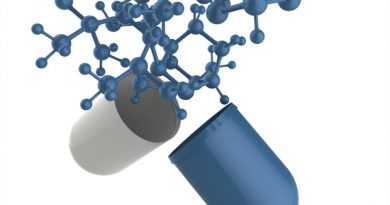Fatty liver disease: Feeling weak or confused could signal something wrong with your liver
NHS Choices: Liver Disease
We use your sign-up to provide content in ways you’ve consented to and to improve our understanding of you. This may include adverts from us and 3rd parties based on our understanding. You can unsubscribe at any time. More info
Fatty liver disease is a common condition caused by having too much fat build up in a person’s liver. A healthy liver contains a small amount of fat, but it becomes a problem when fat reaches 5 to 10 percent of your liver’s weight. Experiencing weakness or confusion could indicate you are at risk.
People with fatty liver disease often have no symptoms until the disease progresses to cirrhosis of the liver.
According to Cleveland Clinic, if a person does have symptoms, they may include:
- Abdominal pain or a feeling of fullness in the upper right side of the abdomen (belly).
- Nausea, loss of appetite or weight loss.
- Yellowish skin and whites of the eyes.
- Swollen abdomen and legs.
- Extreme tiredness or mental confusion.
- Weakness.

In a study published in the National Library of Health, fatigue and its measurement in chronic liver disease was investigated.
The liver is central in the pathogenesis of fatigue because it uniquely regulates much of the storage, release and production of substrate for energy generation, noted the study.
It added: “Metabolic contributors to fatigue, beginning with the uptake of substrate from the gut, the passage through the portal system to hepatic storage and release of energy to target organs (muscle and brain) are central to understanding fatigue in patients with chronic liver disease.
“Inflammation either causing or resulting from chronic liver disease contributes to fatigue.”
The study concluded that “fatigue is a critical component of chronic liver disease. It is common, complex, confusing and challenging to treat.”
DON’T MISS
Type 2 diabetes: Three skin conditions signal high blood sugar [INSIGHT]
How to live longer: Five lifestyle habits that can help [TIPS]
Bowel cancer symptoms: Sign after pooing [ADVICE]
Experts don’t know exactly why some people accumulate fat in the liver while others do not.
Similarly, there is limited understanding of why some fatty livers develop inflammation that progresses to cirrhosis.
For some people, this excess fat acts as a toxin to liver cells, causing liver inflammation, which may lead to a buildup of scar tissue in the liver.

Treatment options for reducing the condition from getting worse include:
- Avoiding alcohol.
- Losing weight.
- Taking medications to control diabetes, cholesterol and triglycerides (fat in the blood).
- Taking vitamin E
Some studies suggest that the Mediterranean diet may also decrease the fat in the liver.
This nutrition plan recommends eating plenty of fruits, vegetables, whole grains, legumes, nuts, replacing butter with olive or canola oil, limiting red meat, and eating more fish and lean poultry.
The Mediterranean diet, with its emphasis on plants and a lack of processed and sugary foods, can help prevent non-alcoholic fatty liver disease.
Source: Read Full Article



